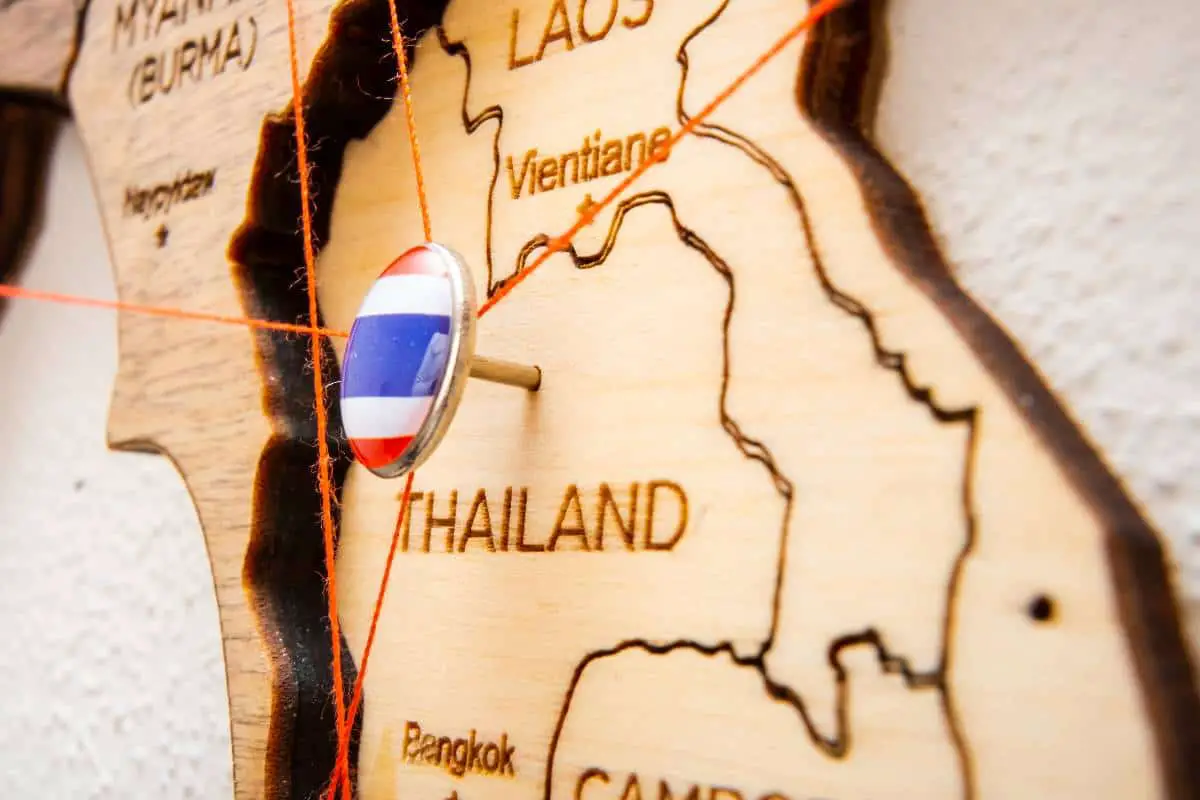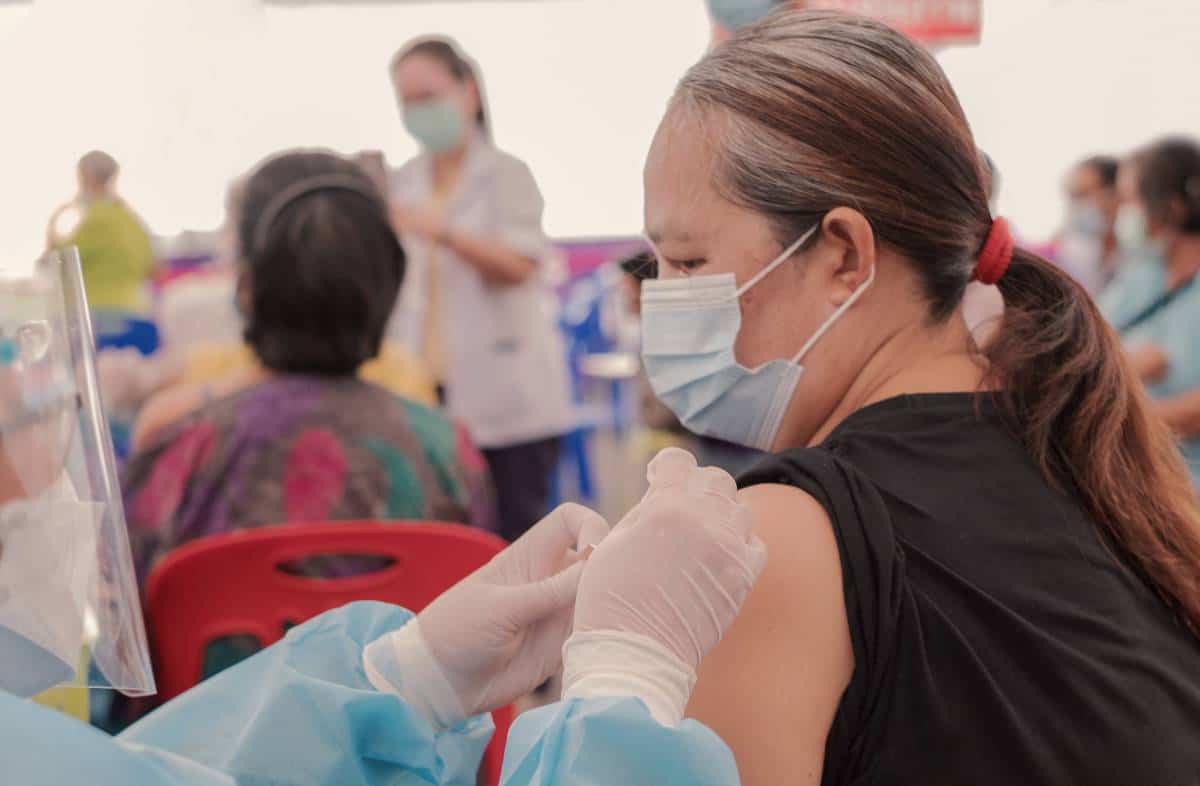Thailand Travel Vaccinations: A Need for Expats
Hey friends! I’m Tom, founder of BetterLivingAsia, back to talk all things Thailand travel health and safety. I get a ton of questions about vaccines, diseases, and staying in tip-top shape while visiting this amazing country. As someone who has lived here for years, I want to break down everything you need to know before your trip.
Let’s start with the basics…
Key Takeaways:
- Determine mandatory and recommended vaccines based on your itinerary, medical history, age, and health factors.
- Prevent mosquito bites and illness by using EPA-approved bug spray, protective clothing, and sleeping under bed nets.
- Practice food and water safety precautions like avoiding uncooked fruits/veggies and untreated tap water.
Figuring Out Your Necessary Vaccines
Thailand doesn’t require proof of vaccination to enter the country. But certain shots provide vital protection based on your medical history, age, trip activities, and length of stay. I’ll summarize the most critical ones:
A) Recommended for Most Travellers
- Hepatitis A – Protects against food/water contamination
- Typhoid – Also caused by contaminated food or water
- Tetanus Booster – Safeguards against bacteria in soil entering cuts
These vaccines cover you against the most common illness risks. I suggest getting them 3-4 weeks before departure. A book like the CDC Yellow Book 2024 also offers comprehensive information on recommended vaccines and health precautions for travelers to a lot of countries and destinations, including Thailand.
B) Strongly Advised Under Certain Conditions
Now if you have certain medical issues, are staying over a month, or visiting remote regions – additional immunizations are smart:
- Rabies – Required for extended outdoor exposure due to stray dogs
- Japanese Encephalitis – Mosquito threat in rural rice-growing areas
- Yellow Fever – Only for travelers arriving from endemic zones
Discuss your unique situation with a travel health pro to decide if these added vaccines are suitable.
Onto everyone’s favorite topic – bugs!
Dodging Mosquitos and Staying Healthy
Mosquito bites might seem harmless…until you get struck with malaria, dengue, or chikungunya! These nasty viruses can quickly escalate into hospital stays.
The most critical precaution is avoiding mosquitos day and night. I follow 3 simple rules that have served me well all these years in Thailand:
- Use EPA-approved bug sprays like those containing DEET, picaridin, or IR3535
- Wear light long sleeves/pants outdoors – less skin = less bites!
- Sleep under bed nets, properly set up with no tears
Sticking to these prevents 99% of mosquito diseases.
Oh, one last vital tip – pick accommodations with air conditioning. Mosquitos hate the cold!
Safe Eating and Drinking Habits
Alright, let’s shift to a tastier topic – the glorious food! Thailand’s mouthwatering cuisines lure travelers from around the globe. But certain precautions are wise to avoid tummy issues:
Raw Fruits and Veggies
Avoid uncooked veggies and peel all fruit before eating. Bacteria like E. coli and salmonella fester on rinds and skins.
Safe Water
Drink only boiled or bottled water. Bugs like cryptosporidium spread via untreated tap water and ice cubes.
Street Food Safety
I know it’s tempting to grab snacks from roadside carts! Select hot-cooked items and make sure utensils are clean. Avoid mayo-based salads sitting out.
Apply this street-smart mentality to all meals and you’ll be fine. Leave the Pepto Bismol at home! Now let’s move on to general safety while exploring Thailand’s awe-inspiring landscapes.

Regional Health Considerations
Thailand’s diverse geography, from bustling Bangkok to remote hill tribes, impacts health factors. I’ll summarize key precautions for major areas:
A) Bangkok & Central Provinces
In the capital, traveler’s diarrhea is the primary concern. Follow the above eating/drinking tips to avoid. Modern clinics abound if issues arise.
B) Northern Mountainous Region
Cooler northern areas have fewer mosquitos but remoteness makes healthcare access tougher. Consider evac insurance and being extra vigilant to avoid infections needing treatment.
C) Southern Peninsula & Islands
The sultry south teems with malaria carrying mosquitos so extra prevention applies. Low season (May-Sept) poses less risk. Rabid monkeys inhabit certain islands so give them distance!
Tailor your safeguards based on where your Thailand journey takes you.
Kids Health & Safety
Bringing the whole family? Awesome! Thailand offers amazing opportunities to create lifelong memories. Just take additional precautions with little ones:
- Keep kids covered against bites
- Ensure they receive all routine childhood immunizations
- Monitor food and water intake closely
- Avoid petting stray animals
Do this and you’ll have happy, healthy kiddos to share the cross-cultural experience!
Finalizing Travel Health Preparations
You’ve made the big decision to embark on your Thailand getaway! As you wrap up logistics, here are 3 key steps:
A) Get Expert Medical Counsel
Consult a travel health pro 4-8 weeks pre-departure to review:
- Necessary & recommended vaccines
- Prescriptions and medical supplies
- 24/7 emergency contacts during the trip
They’ll customize guidance to your health profile.

B) Schedule Appointments Strategically
Map out dates to get needed shots and meds:
- Hepatitis A – Get first shot at 4 week mark, second shot at 6-12 months if no prior vaccination
- Tetanus booster – 3-4 weeks out
- Antimalarials – 1-2 weeks out
Timing matters, so plan wisely!
Thailand’s tropical climate means plenty of pesky mosquitos carrying nasty diseases like malaria, dengue fever, chikungunya, and Zika. I’ll break down how to dodge these little bloodsuckers:
Mosquito-Borne Diseases
Malaria – Caused by parasites from mosquito bites. Symptoms are high fevers, chills, and fatigue. Risk highest along borders with Cambodia, Laos, and Myanmar. Also southern Thailand.
Dengue Fever – Mosquito-borne virus causing high fever, rash, and joint pain. It is more common in cities like Bangkok. No vaccine or treatment exists, so avoidance is critical.
Chikungunya – Another virus triggering fever plus serious joint pain lasting months. Found across Thailand with peak season during the rainy months.
Zika Virus – Usually causes mild illness but is highly dangerous to developing fetuses if the mother is infected. Present mainly southern provinces bordering Malaysia.
As you can see, Getting bitten is bad news! Now let me give you pro tips to steer clear of the biters:
Preventing Mosquito Bites
- Use EPA-approved bug sprays with DEET, Picaridin, or IR3535. Reapply after sweating/swimming.
- Cover skin fully with light long sleeves, pants, and socks. Mosquitos bite any exposed flesh!
- Treat clothes with permethrin 1 week before travel for added protection.
- Sleep under bed nets, properly hung without holes for maximum coverage.
- Burn mosquito coils in your room to keep the mini vampires away!
Stick to these steps religiously and you’ll avoid mosquito hazards.
Beyond bugs, contaminated food and water causes havoc to traveler’s digestive systems if you’re not careful. Follow these tips to stay diarrhea-free:
- Peel fruits and vegetables or avoid raw veggies/sprouts altogether
- Drink only boiled or bottled water, never tap or questionable ice cubes
- Choose steaming hot dishes instead of room temp salad bars with mayo
- Inspect street vendor setups ensuring utensils/containers are clean
- Say no to the sauce as bugs breed easily in sauces and dressings
“When in doubt, leave it out!” has helped this stomach survive decades of enjoying Thailand’s zesty cuisines.
Preparing for your trip properly takes a bit of planning – but is worth it to stay healthy! Let me walk you through the key steps:
Finding Travel Clinics & Vaccines
Getting necessary or recommended immunizations is a cornerstone of travel prep. Thailand doesn’t have mandates, but shots like hepatitis A, typhoid, and tetanus provide protection. Deciding which ones require an appointment with a travel clinic or your family doctor 4-6 weeks before departure.
Where to go? Big pharmacy chains often have travel health services and can advise if vaccines are covered by your insurance. Independent clinics like PassportHealth and local health departments also offer consultations.
Check vaccine availability in advance, as some may need ordering. Yellow fever shots are only available at approved centers, for example. Planning this early ensures you get full immunity before takeoff!
Travel Insurance & Medical Care
Overseas medical issues can get pricey without proper coverage! Look for comprehensive travel insurance that includes:
- Emergency medical treatment – covers illness/injuries abroad
- Medical evacuation – transports you home if necessary
- Trip cancellation – reimburses if you must scrap plans
Thailand has excellent hospitals and clinics certified to treat foreigners. But costs add up fast without insurance. Better safe than sorry!
COVID-19 Health Tips
Thailand dropped testing and quarantine rules for international arrivals. But stay vigilant against COVID-19 by:
- Getting up to date with COVID vaccinations before departure
- Bringing along extra KN95 masks to wear in crowded settings
- Packing personal hand sanitizer and surface disinfecting wipes
- Knowing testing options and protocol if you develop symptoms
Compare Thailand’s latest entry policies on the Thai Embassy website for the newest guidelines.
FAQs
What vaccinations do I need for traveling to Thailand?
The recommended vaccinations for traveling to Thailand include routine vaccines, hepatitis A, hepatitis B, typhoid, yellow fever, Japanese encephalitis, rabies, and malaria, among others.
Do I need a yellow fever vaccination when traveling to Thailand?
Yellow fever vaccination is recommended for travelers visiting parts of Thailand that are at risk of yellow fever, especially if traveling from a country with a risk of yellow fever transmission.
Where can I get travel vaccinations for Thailand?
You can get travel vaccinations for Thailand at travel medicine clinics, healthcare providers specialized in travel medicine, or designated vaccination centers. Check with your local health department or a travel health clinic for more information.
What are the health risks in Thailand that I should be aware of?
Health risks in Thailand include dengue fever, malaria, hepatitis A and B, rabies, and Zika virus, among others. It’s essential to consult with a healthcare provider or travel medicine specialist to assess your individual risk and recommended vaccinations.
Is COVID-19 vaccination a requirement for traveling to Thailand?
As of the most current information, COVID-19 vaccination or testing may be a requirement for traveling to Thailand. It is crucial to stay updated with the latest travel advisories and entry requirements from the embassy or consulate of Thailand in your country.
What do I need to know about getting vaccines for Thailand?
When planning to get vaccines for Thailand, consider the specific regions you will visit, the duration of your trip, potential health risks, and your overall health condition. Schedule a consultation with a healthcare professional to discuss your travel plans and receive personalized vaccination recommendations.
Are there any routine vaccines recommended for travelers to Thailand?
Yes, routine vaccines such as the measles-mumps-rubella (MMR) vaccine, diphtheria-tetanus-pertussis vaccine, varicella (chickenpox) vaccine, and influenza vaccine are recommended for travelers to Thailand, irrespective of their travel destination.
Conclusion
And that sums up my best advice after decades of enjoying this fascinating country! By taking the proper health precautions, you’re all set for an adventure of a lifetime discovering Thailand’s renowned sites.
Feel free to schedule a consultation call with me to address other questions you may have. My team and I eagerly help newcomers navigate this captivating corner of the world. Just drop us a line anytime to take advantage of our years of experience.
Here’s to your happy new chapter living abroad in enchanting Thailand!






